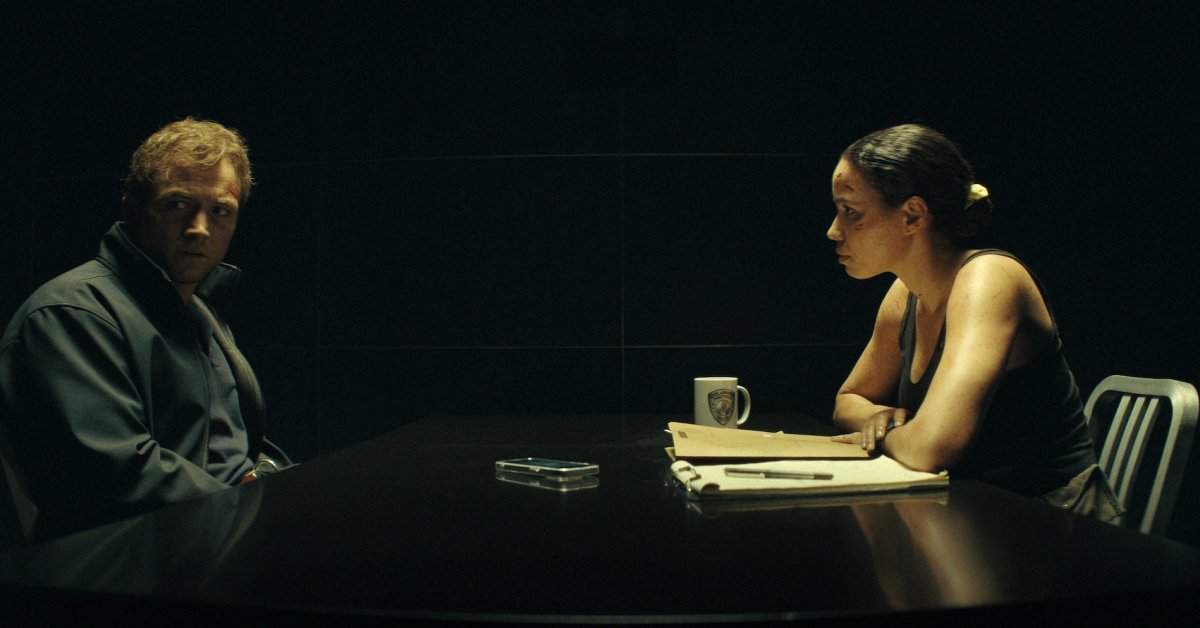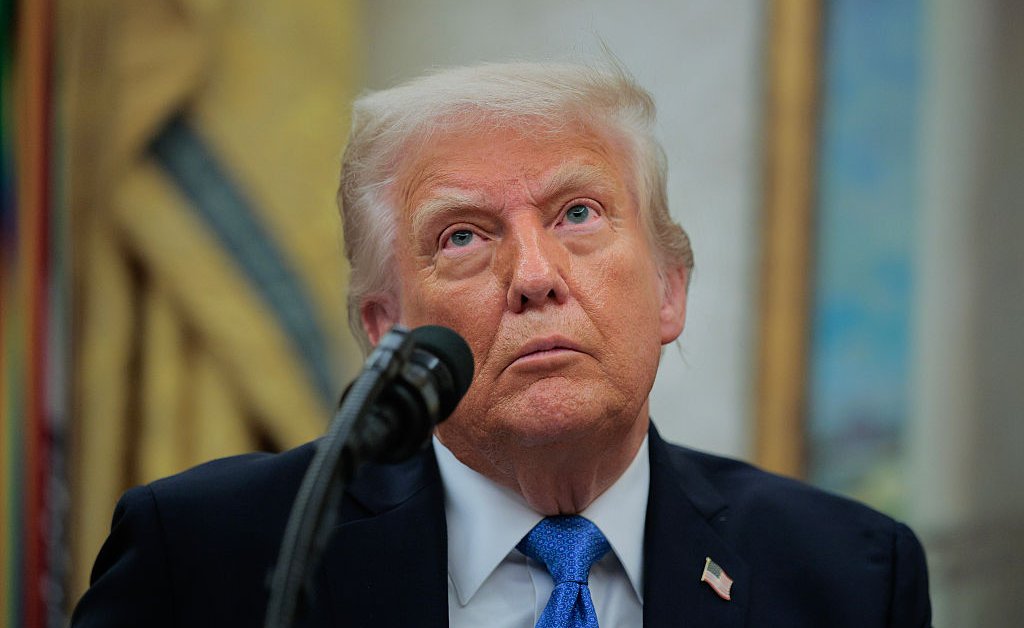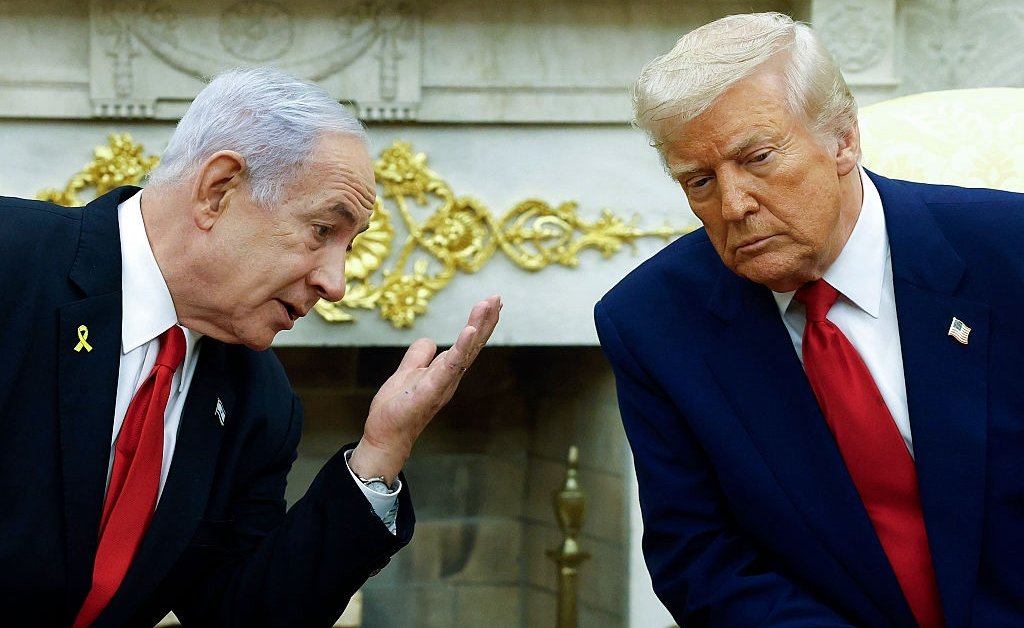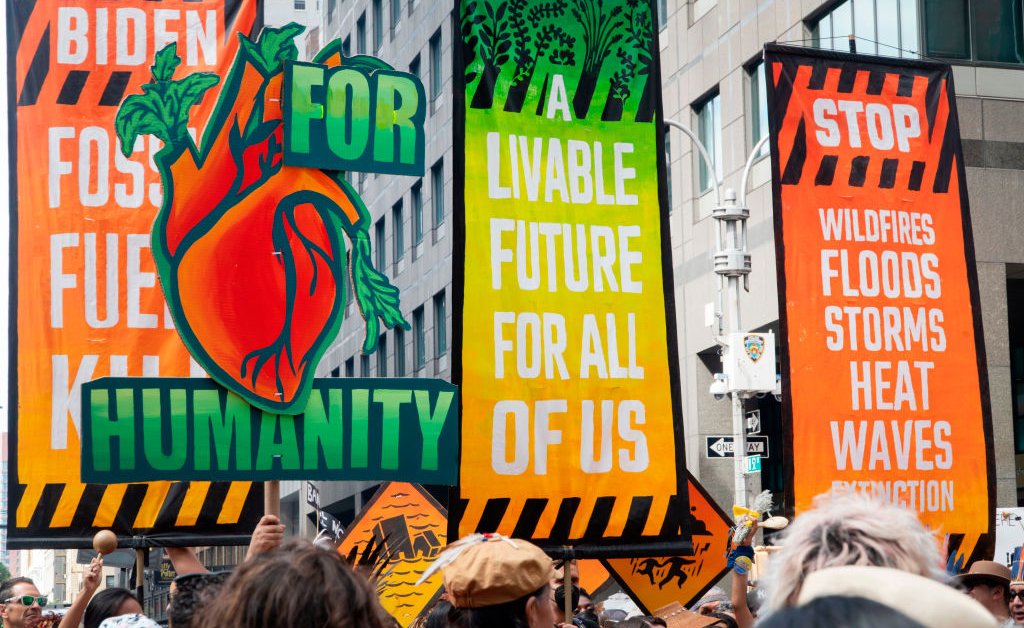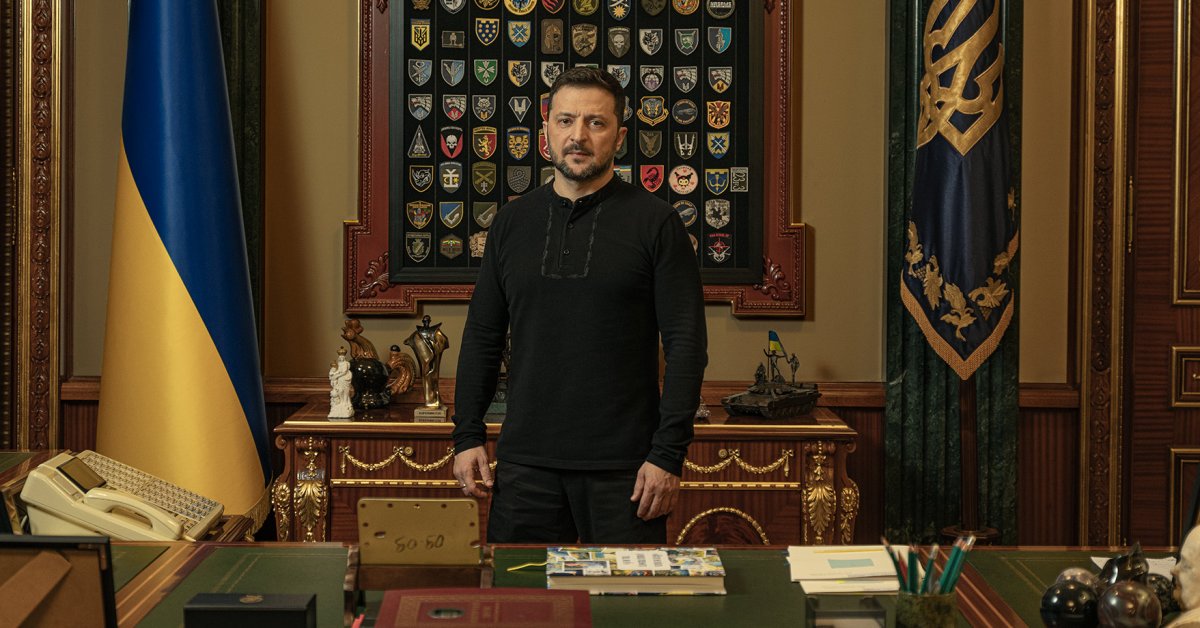Warning: This post has spoilers for the finale of Smoke.
Across nine episodes, Smoke traced destruction as it traveled from suburban streets and storefronts into more figurative places—the dark recesses of identity, the fragile façades to which people cling in order to survive. By the season finale, “Mirror Mirror,” long-buried truths surface, demanding a reckoning as emotional as it is inevitable.
Creator Dennis Lehane always envisioned a climax that erupted on every level. “It’s such a cliché, but I wanted to have an explosive finale,” he tells TIME. “This is a show about fire. We’ve been promising them fire, so we’re going to give them the fire of all fires. We wanted to go as big as we can—just go for broke, and if we miss, we miss.”
That eruption plays out most vividly through the series’ two central figures. If Michelle Calderone (Jurnee Smollett) serves as its moral compass, Dave Gudsen (Taron Egerton) is its shape-shifter, the man whose presence destabilizes every scene because even his sense of self is built on deception. Over the season, he was both predator and partner, the charming investigator and the arsonist hiding in plain sight. By the end, the armor he constructed—and the story he’s told so often he nearly believes it—has crumbled.
Read more: Smoke Goes Inside the Mind of a Real-Life Serial Arsonist
Into the growing inferno

The finale opens in the aftermath of Michelle’s darkest act. In the penultimate episode, “Mercy,” she accidentally wounded Captain Burke (Rafe Spall)—her colleague and former lover—then let him die, torching his home to eliminate the evidence. Before fleeing, she planted a glove bearing Gudsen’s DNA, crafting a false trail. Now, in “Mirror Mirror,” she struggles to steady herself, continuing to investigate alongside Gudsen while her composure falters beneath the surface.
Her act of arson ignites something far more catastrophic: an uncontained wildfire rising from Burke’s ruins, flames roaring as windborne embers spiral into the dark. She and Gudsen drive headlong toward the blaze, racing through the woods while heat presses in and smoke thickens the air—until the path reveals itself to be a trap. Gudsen, unmasked earlier as one of the two serial arsonists she’s been hunting, unbuckles her seat belt and wrenches the wheel, sending them into a crash designed to kill her.
Harry Nilsson’s “Jump Into the Fire” pulses as Michelle—not dead—ties back her hair, preparing for battle. Gudsen crawls from the wreckage; she kicks him, slams him against the car, and presses the barrel of a gun into his mouth. She doesn’t pull the trigger. Instead, a storm breaks—rain cascading in a moment of symbolic and literal cleansing. “[It’s] as clean as Michelle’s gonna get in that moment,” Lehane says. “She’s pushed this all the way, and there’s nothing left to do. Because if it didn’t rain at that moment, something bad could have happened to Dave.” The downpour pulls her back from crossing an irreversible line. As rain drenches them both, she reads him his rights.
For Lehane, the scene’s tension lies partly in its soundtrack. Many of the show’s song selections were his. (“That’s where I really do feel a bit like an auteur,” he adds.) He crafted the entire sequence around Nilsson’s drum solo, playing it endlessly in the writers room. “When I shot that, I said to the creative team, ‘Look, guys, we are doing this to Harry Nilsson’s ‘Jump Into the Fire,’” Lehane recalls. When the initial cut used different music, he personally recut the scene to match Nilsson’s rhythm, and the editor ultimately agreed it was the right move. “We worked that to the bone to get it exactly where I wanted it.”
It’s a primal, visual crescendo he conceived during what he calls a “mad scientist” burst in the Los Angeles writers’ room, scribbling notes while listening to the Oppenheimer soundtrack. “I love ‘Go Big or Go Home’ moments,” he says. “I don’t do them much… I like to twist, twist, and twist. But this was a big moment.”
Read more: The Best New TV Shows of July 2025
A battle of damaged wills

After their confrontation in the woods, Michelle delivers Gudsen to a waiting Jeep, where Esposito (John Leguizamo) greets her with an air of triumph. Back at Columbia Metro Police Headquarters, the station falls silent as officers watch Gudsen enter, their contempt palpable. In the station bathroom, Michelle catches her reflection, and then sees him—Burke—not in the mirror, but in her mind, planting a warning that if anyone discovers their affair, the truth could unravel everything she’s accomplished.
In the interrogation room, things shift to psychological warfare. Gudsen weaves stories, reframes evidence, accuses Michelle of bias, and dismisses the glove bearing his DNA as circumstantial. He maintains he was merely investigating, but Michelle counters with his manuscript, cross-referencing it with actual unsolved arson cases and highlighting details only the perpetrator, or someone with access to classified files, could possess.
Still, he deflects. Perhaps a lawyer leaked the report. Maybe a private investigator shared too much. Then Esposito sends Michelle a photograph: the disguise Gudsen wore during the hardware store attack, discovered in a hidden compartment of his impounded car. Even confronted with this evidence, he refuses to confess.
It’s a standoff Lehane and Smollett dissected at length during filming. “I call [Jurnee] my thespian queen,” he says. “At this point, Michelle is desperate. Let’s call a spade a spade—she started the incident that caused all this. Her morality is compromised by the end. She’s interrogating Dave for a murder she committed and destruction she caused. Yet she’s pursuing justice, which we all want. We all want Dave brought to justice.”
Gudsen’s strategy remains unchanged. “He will deny, deny, deny, and attack, attack, attack,” Lehane explains. “He refuses to let truth penetrate, but when it slips through, when she extracts it from him, he glimpses himself. Then he turns away.” During their final exchange in the interrogation room, Gudsen stares at Michelle. “I know who I am,” he declares. She meets his gaze, responding simply, “So do I.”
The shape of denial
The closing montage delivers quiet devastation. Gudsen’s ex-wife and son pack away photographs, including one showing a heavier, balder version of the man—a face both foreign and unmistakably his. In a single frame, the myth of the chiseled, commanding investigator collapses, revealing the ordinary figure he’s spent years trying to erase. Over Thelma Houston’s “Don’t Leave Me This Way,” the moment turns contemplative—Lehane’s final musical choice, selected to underscore the magnetic pull between Michelle and Gudsen, two people unable to fully break free from each other. Whether he’ll ever be convicted remains uncertain, the unanswered question hanging over the finale, which ends before a trial.
Gudsen’s fractured identity—swaggering machismo versus devoted family man—might suggest dissociative identity disorder, but Lehane resists reducing him to a clinical label. For him, Dave represents a broader cultural pathology. “I think of it the same way I think of all these performative males in our culture right now: macho dweebs hiding behind their keyboards,” he explains. “If you saw them in person, you’d see some little 5’-6″ guy who lives with his mom.”
Dave’s psychology, Lehane argues, stems from denial, particularly regarding his desires and the transgressive aspects of his personal life. The writers explored how his relationships diverge from those of what Lehane calls a “healthy heterosexual American male,” suggesting truths Dave cannot acknowledge. “We’re all constructing these personas, and it’s damaging the world,” he observes.
That critique carries personal weight. Like Egerton’s character Jimmy Keene in Lehane’s previous Apple TV+ series Black Bird, Gudsen functions as a cultural stand-in. Lehane was raised in what he describes as an “extremely masculine culture”; his immigrant father and uncles worked with their hands. But authenticity, not posturing, defined their masculinity. “My father had nothing but contempt for posing,” Lehane recalls. “If my brothers got a weight set, he’d say, ‘Why do you need to push a bar up and down? You can just do hard work.'”
Lehane often considers how that generation would view today’s performative masculinity. “I think he would be befuddled and appalled,” he says. “A lot of the great-grandfathers and grandfathers of the men polluting our culture right now would be appalled.” In that sense, Dave is his embodiment of “toxic masculinity,” a man whose identity rests on performance and concealment, whose carefully crafted armor masks profound emptiness.
Living with the aftermath

Lehane never set out to create a simple morality tale with clear heroes and villains. The ambiguity is deliberate, with Gudsen and Michelle shaped by their compromises, each capable of inflicting harm. Gudsen’s intelligence and charm form part of his protective façade, a narrative he’s repeated until it feels almost genuine. In his final moments, he approaches self-recognition before retreating, leaving both audience and characters suspended in uncertainty. Michelle, meanwhile, is steadied by duty and singed by guilt, hunting the truth even as the secret she carries could undo her.
That deliberate inconclusiveness places Smoke alongside other works that resist easy answers. Lehane draws parallels to The Sopranos’ contentious finale. “Whether you liked it or not, you’re still talking about it,” he notes. He’s witnessed similar reactions to the conclusion of Shutter Island, the 2010 Martin Scorsese psychological thriller he wrote. “It’s the question I get more than any other. I got it from my 16-year-old daughter yesterday. She said, ‘Dad, my friends really want to know.’ I was like, ‘Honey, I’m not telling you.'”
Dave and Michelle constructed identities around control and performance, and now both stand exposed: raw, unstable, unmoored. “What do they have in their lives, really, without each other?” Lehane asks. “They let their ids run so completely amok that there is no way to get half the horses back in the barn. So that is the big final dramatic question: Where are these people going to go now?”Smoke concludes without resolution, offering only consequence. The greatest damage isn’t physical destruction but exposure itself: the compromises and deceptions that prove too painful to confront. What lingers isn’t closure, but the mental heft of choices that cannot be undone—and the knowledge that carrying them is the only path forward.

